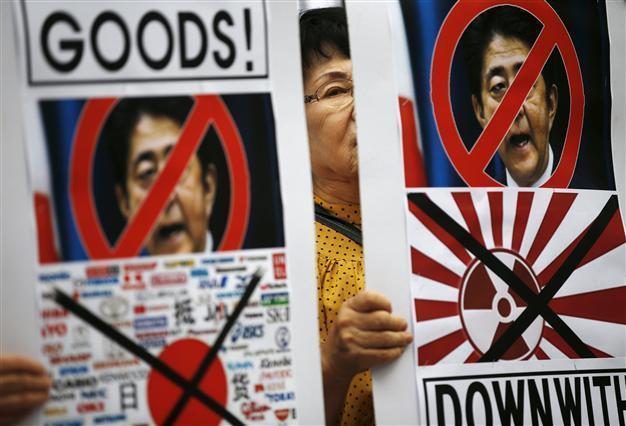Japan economy shrinks in setback for ‘Abenomics’
TOKYO - Reuters

REUTERS photo
Japan’s economy shrank at an annualized pace of 1.6 percent in April-June as exports slumped and consumers cut back spending, adding pressure on Prime Minister Shinzo Abe to step up his policy drive to lift the economy out of decades of deflation.China’s economic slowdown and its impact on its Asian neighbors have also heightened the chance that any rebound in growth in July-September will be modest, analysts say.
The gloomy data adds to signs that Japan’s economy is at a standstill and heightens pressure on policymakers to offer additional monetary or fiscal stimulus later this year.
The contraction in gross domestic product (GDP) compared with a median market forecast of a 1.9 percent fall and followed a revised expansion of 4.5 percent in the first quarter, Cabinet Office data showed on Aug. 17.
“If weak private consumption persists, that would be a further blow to Abe’s administration, which is facing falling support rates ahead of next year’s Upper House election,” said Hiromichi Shirakawa, chief Japan economist at Credit Suisse.
“This could raise chances of additional fiscal stimulus.”
Private consumption, which makes up roughly 60 percent of economic activity, fell 0.8 percent from the previous quarter, double the pace expected by analysts.
It was the first decline since April-June 2014, when a sales tax hike hit consumption, as households spent less on air conditioners, clothing and personal computers.
Overseas demand shaved 0.3 percentage point off growth as exports to Asia and the United States slumped.
The data looks likely to force the BOJ to cut its forecast of a 1.5 percent economic expansion for the current fiscal year when it reviews its long-term projections in October.
But the weak consumption underscores a dilemma the Central Bank faces that may discourage it to expand stimulus.
Economics Minister Akira Amari acknowledged that consumption may have been hit by rising food prices, as the BOJ’s easing weakened the yen and pushed up import costs.
















